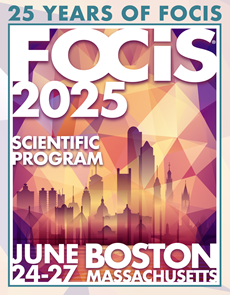Immuno-engineering and Cellular Therapies
Session: Late-Breaking Abstracts
Engineering Relapse-Resistant CAR T-Cells for Blood Cancers (Penta T-Cells)
Wednesday, June 25, 2025
3:15pm - 3:30pm East Coast USA Time
Location: Salons H-K
Nils Engel – Perelman School of Medicine, University of Pennsylvania; Julia Malachowski – Perelman School of Medicine, University of Pennsylvania; Regina Young – Perelman School of Medicine, University of Pennsylvania; Bruce Levine – Perelman School of Medicine, University of Pennsylvania; Carl June – Perelman School of Medicine, University of Pennsylvania
- PR
Philipp C. Rommel, Dr. rer. nat.
Research Associate
University of Pennsylvania
Philadelphia, Pennsylvania, United States
Presenting Author(s)
Abstract Text: Immunotherapy with chimeric antigen receptor (CAR) T-cells has demonstrated remarkable success in treating hematological malignancies. Despite impressive outcomes, relapse driven by antigen-negative disease remains a critical challenge. To overcome tumor antigen escape, effector T-cells are engineered to co-express two CARs with distinct antigen specificities such as CD19+CD20 or CD19+CD22. However, tumor relapses still occur and limitations in the manufacturing of multi-receptor CAR T-cells restrict clinical translation, highlighting the need for innovative approaches.
We developed a platform for engineering and manufacturing multi-receptor CAR T-cells accommodating transgenes beyond current size limitations. As proof of concept, we generated the first T cell with five independent receptors based on a single-vector design (Penta T-cell): four CARs to enable simultaneous targeting of CD19/CD20/CD22/CD79b and mLNGFR for monitoring. In vitro studies using single-antigen-positive Ramos tumor models validate that, in contrast to monospecific anti-CD19 CAR T-cells, the cytotoxic activity of Penta T-cells is not limited to CD19+ cancers but extends to CD20+, CD22+, and CD79b+ tumors. Moreover, by combining single-antigen-positive tumors to create an antigen-heterogeneous cancer model (mixed CD19+/CD20+/CD22+/CD79b+ tumor), we demonstrate that Penta T-cells effectively clear heterogeneous cancers by targeting all four antigens simultaneously. In contrast, anti-CD19 CAR T-cells eliminate only the CD19+ tumor fraction, resulting in antigen-escape. Our work represents a crucial proof-of-concept for relapse-resistant CAR T-cells, addressing current barriers in CAR T-cell design and production.
We developed a platform for engineering and manufacturing multi-receptor CAR T-cells accommodating transgenes beyond current size limitations. As proof of concept, we generated the first T cell with five independent receptors based on a single-vector design (Penta T-cell): four CARs to enable simultaneous targeting of CD19/CD20/CD22/CD79b and mLNGFR for monitoring. In vitro studies using single-antigen-positive Ramos tumor models validate that, in contrast to monospecific anti-CD19 CAR T-cells, the cytotoxic activity of Penta T-cells is not limited to CD19+ cancers but extends to CD20+, CD22+, and CD79b+ tumors. Moreover, by combining single-antigen-positive tumors to create an antigen-heterogeneous cancer model (mixed CD19+/CD20+/CD22+/CD79b+ tumor), we demonstrate that Penta T-cells effectively clear heterogeneous cancers by targeting all four antigens simultaneously. In contrast, anti-CD19 CAR T-cells eliminate only the CD19+ tumor fraction, resulting in antigen-escape. Our work represents a crucial proof-of-concept for relapse-resistant CAR T-cells, addressing current barriers in CAR T-cell design and production.

